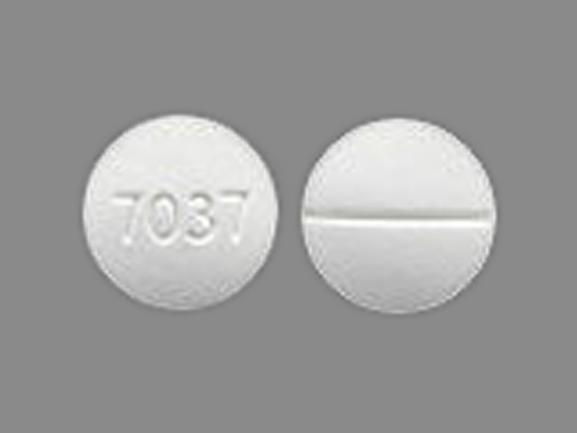Methitest Disease Interactions
There are 10 disease interactions with Methitest (methyltestosterone).
- Carcinoma (male)
- Fluid retention
- Hypercalcemia in breast cancer
- Hyperlipoproteinemia
- Liver disease
- Polycythemia
- Suppression of clotting factors
- Diabetes
- Hypercalcemia
- Thyroid function tests
Androgens (applies to Methitest) carcinoma (male)
Major Potential Hazard, High plausibility. Applicable conditions: Prostate Cancer, Breast Cancer -- Male, Benign Prostatic Hyperplasia
The use of androgenic anabolic steroids is contraindicated for male patients with carcinoma of the breast or prostate. Circulating androgens can be converted in peripheral tissues to estrogens and dihydrotestosterone, which may act as promoters of tumor growth in the breast and prostate, respectively. Likewise, androgenic agents may cause enlargement of the prostate and should be used cautiously in patients with or predisposed to prostatic hypertrophy.
Androgens (applies to Methitest) fluid retention
Major Potential Hazard, High plausibility. Applicable conditions: Liver Disease, Congestive Heart Failure, Renal Dysfunction
Androgenic anabolic steroids may cause sodium and water retention, particularly when given in high dosages or for prolonged periods. Therapy with these agents should be administered cautiously in patients who have preexisting problems with fluid overload or are at risk for developing edema. The manufacturers consider the use of androgenic agents to be contraindicated in patients with severe cardiac, renal and/or hepatic dysfunction.
Androgens (applies to Methitest) hypercalcemia in breast cancer
Major Potential Hazard, Moderate plausibility.
When treated with androgenic anabolic steroids, patients with metastatic breast cancer may develop hypercalcemia due to osteolysis. Frequent determination of urine and serum calcium levels is recommended during therapy with androgenic agents. If hypercalcemia occurs, therapy should be stopped. The development of hypercalcemia may indicate progression of metastases to the bone.
Androgens (applies to Methitest) hyperlipoproteinemia
Major Potential Hazard, Moderate plausibility. Applicable conditions: Ischemic Heart Disease, Hyperlipidemia
Androgenic anabolic steroids may adversely affect serum lipids, including lowering HDL and elevating LDL levels. These changes can be marked, particularly with the 17-alpha-alkyl derivatives (i.e., fluoxymesterone, methyltestosterone, oxandrolone, oxymetholone, and stanozolol), and may significantly impact the risk of atherosclerosis and coronary artery disease. Patients with preexisting hyperlipoproteinemia may require closer monitoring during therapy with androgenic agents, and adjustments made accordingly in their lipid-lowering regimen. Androgen therapy should be administered cautiously in patients with coronary artery disease or a history of ischemic heart disease.
Androgens (applies to Methitest) liver disease
Major Potential Hazard, Moderate plausibility.
The use of androgenic anabolic steroids may be associated with development of cholestatic hepatitis and jaundice. Other, more serious hepatotoxicities such as peliosis hepatis and hepatocellular neoplasms are rare but may occur with prolonged use or high dosages. These latter toxicities may be fatal and often not recognized until they become life-threatening. Patients with preexisting liver diseases should be monitored more closely during therapy with anabolic steroids if they are used. If liver function declines or toxicity occurs, therapy should be withdrawn and the cause investigated.
Androgens (applies to Methitest) polycythemia
Major Potential Hazard, Moderate plausibility.
Androgenic anabolic steroids may cause polycythemia when given in high dosages or for prolonged periods. Patients with preexisting polycythemia may experience worsening of their condition. Frequent monitoring of clinical status and hemoglobin and hematocrit levels is recommended if androgen therapy is administered to these patients.
Androgens (applies to Methitest) suppression of clotting factors
Major Potential Hazard, Moderate plausibility. Applicable conditions: Bleeding
Androgenic anabolic steroids may cause suppression of clotting factors II, V, VII, and X, and an increase in prothrombin time. Androgen therapy should be administered cautiously in patients with bleeding disorders.
Androgens (applies to Methitest) diabetes
Moderate Potential Hazard, Moderate plausibility. Applicable conditions: Diabetes Mellitus
The metabolic effects of androgenic anabolic steroids may lower blood glucose. Decreased glucose tolerance and increased insulin resistance have also been reported. Patients with diabetes mellitus should be monitored more closely during therapy with androgenic agents, and their antidiabetic regimen adjusted accordingly.
Androgens (applies to Methitest) hypercalcemia
Moderate Potential Hazard, Moderate plausibility. Applicable conditions: Hyperparathyroidism, Renal Dysfunction
Androgenic anabolic steroids decrease urinary excretion of calcium, which may result in hypercalcemia. Therapy with androgenic agents should be administered cautiously in patients with hypercalcemia, disorders of bone metabolism such as hyperparathyroidism, or renal dysfunction. Some manufacturers consider the use of androgenic anabolic steroids to be contraindicated in patients with hypercalcemia.
Androgens (applies to Methitest) thyroid function tests
Minor Potential Hazard, Moderate plausibility. Applicable conditions: Hyperthyroidism, Hypothyroidism
When androgenic anabolic steroids are used in patients with thyroid disorders, clinicians should be aware that these agents may affect thyroid function tests. Specifically, thyroid-binding globulin levels may be decreased, resulting in lower total T4 serum levels and increased resin uptake of T3 and T4. Free thyroid hormone levels remain unchanged, however.
Switch to professional interaction data
Methitest drug interactions
There are 88 drug interactions with Methitest (methyltestosterone).
Methitest alcohol/food interactions
There is 1 alcohol/food interaction with Methitest (methyltestosterone).
More about Methitest (methyltestosterone)
- Methitest consumer information
- Check interactions
- Compare alternatives
- Pricing & coupons
- Drug images
- Side effects
- Dosage information
- During pregnancy
- Drug class: androgens and anabolic steroids
- En español
Related treatment guides
Drug Interaction Classification
| Highly clinically significant. Avoid combinations; the risk of the interaction outweighs the benefit. | |
| Moderately clinically significant. Usually avoid combinations; use it only under special circumstances. | |
| Minimally clinically significant. Minimize risk; assess risk and consider an alternative drug, take steps to circumvent the interaction risk and/or institute a monitoring plan. | |
| No interaction information available. |
See also:
Further information
Always consult your healthcare provider to ensure the information displayed on this page applies to your personal circumstances.


